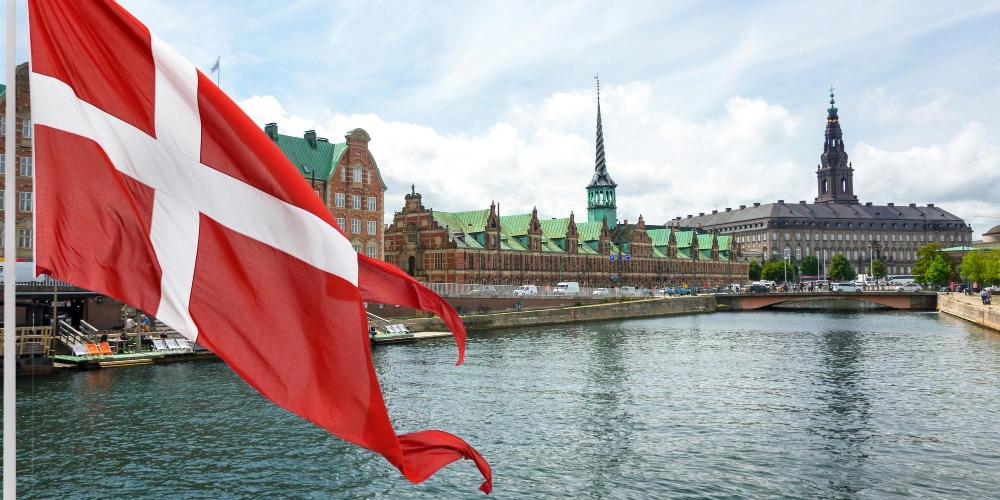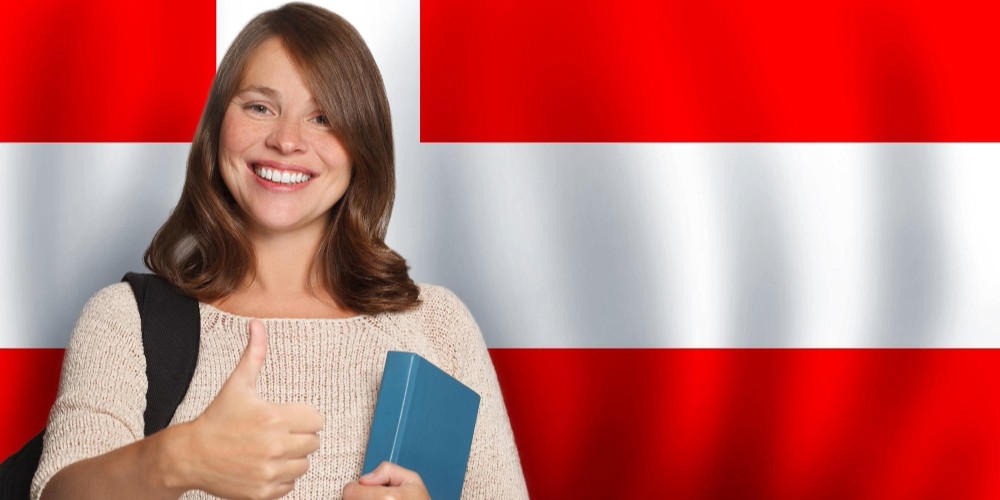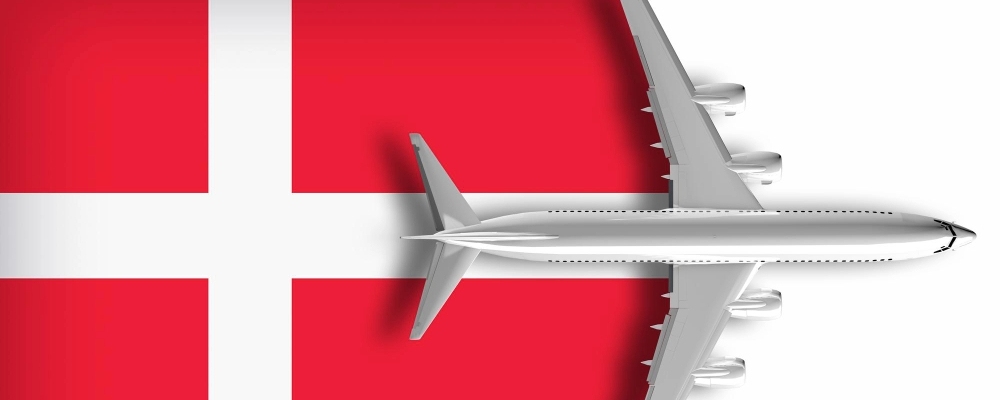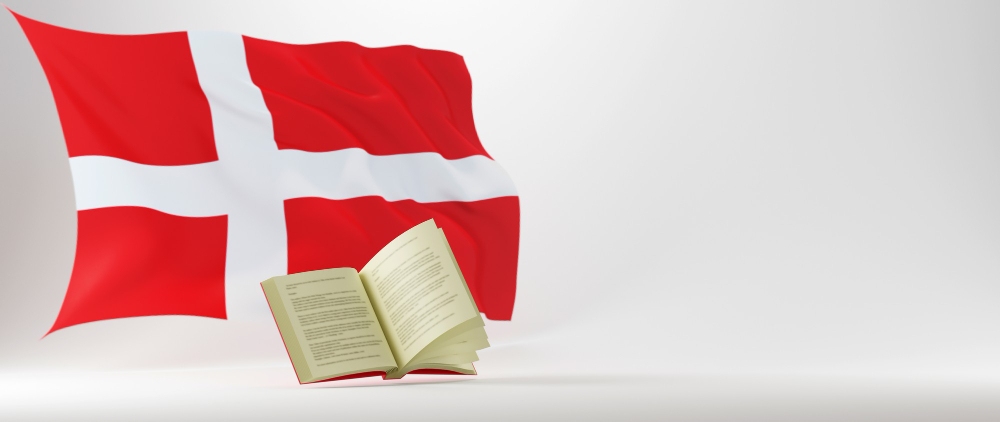Dreaming of studying in Denmark from Nepal? Let Search Education simplify your journey with expert guidance on admissions, scholarships, visas, and career opportunities!


Denmark is one of the most popular study abroad destinations for students seeking high-quality education. It has one of the best universities in the world, including the University of Copenhagen, the Technical University of Denmark, and Aarhus University. Such universities have gained a good reputation for international students by offering quality education in higher institutions through innovative teaching methods and research-based programs.
Denmark ranks fifth on the Global Work Life Balance Index, with a score of 73.45. Only 2% of Danish citizens work long hours, and the country provides 35 days of annual leave, making it an ideal destination for international students looking for a healthy work-life balance.
Denmark has been ranked in the top ten of the Global Peace Index for decades and is recognized as the world's happiest country, with a happiness score of 7.58, according to the World Happiness Report. This makes Denmark an ideal and welcoming destination for international students seeking higher education abroad.
Denmark generally always holds a place in the top 5 in the Quality-of-Life Index, with a score of 209. Apart from good higher education, the country offers good health care, job security, political stability, freedom, and unpolluted surroundings, which show the care for its citizens. It creates an atmosphere safe for international students to excel not only in academics but also in personal life.
Non-EU students automatically get a 3-year post-study work visa after graduating with a bachelor's or master's degree or a PhD in Denmark. It is home to hundreds of leading companies, including Novo Nordisk, LEGO, Vattenfall, and GEA Group. Moreover, after graduation, students can find job opportunities in top sectors such as engineering, ICT, healthcare, green energy, and business, thus making Denmark an ideal destination for international students seeking career growth after their studies.
Denmark offers excellent research opportunities, particularly in science, technology, and health. Universities collaborate with industries, allowing international students to work on exciting projects and connect with leading experts. Many programs also offer fully funded scholarships, fellowships, travel grants, and financial aid. Summer schools and conferences further enhance the academic experience, making Denmark a top choice for scholars and researchers.
Studying in Denmark allows students to apply for a Schengen visa, which lets them travel freely across 27 Schengen Area countries without border controls. Being part of the Schengen Area, international students have the opportunity to explore other member countries and experience different cultures during their studies, enhancing both academic and travel experiences.
Although Danish is an official language in Denmark, more than 86% of the Danish population speaks English. It allows international students to communicate effectively in English with locals and natives without having to learn Danish, which is useful in both social and academic settings.

If you want to study in Denmark from Nepal, you must first understand several eligibility requirements before applying for a student visa. Here is a list of requirements you must know:
These are the basic requirements to study in Denmark. Additional documents may be needed depending on your university. For more details or if you have any questions, visit Search Education and talk to one of our counselors. We’ve assisted over a thousand students with their study abroad journeys, from paperwork to visa applications, making sure all requirements are met.
It takes approximately 2 months or 60 days to get the student visa for Denmark, but it can be extended up to 6 months too. It’s recommended to apply early to avoid delays. Applications must be submitted to the Danish Agency for International Recruitment and Integration (SIRI). Here are the steps for applying:
If you have questions or need help applying for a student visa to Denmark from Nepal, visit Search Education. Our counselors will assist you at every step, from the application process to your departure.

Denmark offers two intakes (i.e., summer and winter) for foreign students.
Intake | Applications Open | Application Deadline |
Summer (September) | Mid December | Mid-January to early February or early March |
Winter (February) | Mid July | Mid-August to early September or early October |
Key points to know about Denmark Intakes:
If you are unsure about the intakes, feel free to speak with our counselor for more information.
The cost of studying in Denmark varies depending on the university location, courses, scholarships, and many other factors. Education is completely free for EU/EEA students or permanent residents. For other international students, including Nepal, the fee can range between €8,000 to €20,000 a year.
Program Level | Tuition Fee (Euro) | Tuition Fee (NPR) |
Undergraduate Program | €6,000 – €15,000 per year | NPR 12,00,000 - NPR 60,00,000 per year |
Post Graduate Program | €8,000– €20,000 per year | NPR 12,00,000 - NPR 50,00,000 per year |
The cost of living in Denmark varies based on the city, lifestyle, accommodation, and personal spending. On average, international students should expect to spend between DKK 6,000 and DKK 10,000 per month (€800 – €1400).
The table below shows the estimated cost of living in Denmark as an International student.
Expense | Estimated Cost (Euro) |
Rent (Including Utilities) | €400 – €500 per month |
Food and Groceries | €200 – €300 per month |
Transportation | €150 – €200 per month |
Clothes | €80 – €100 per month |
Phone and Internet | €40 per month |
Entertainment | €60 – €140 per month |
Miscellaneous Expenses | €120 per month |
Health Insurance | €30 per month |
Textbooks and Study Materials | €35 – €70 per month |

Denmark is the best study destination for international students due to its high-quality education system, safe and welcoming environment, research opportunities, and higher quality of life. Whatever course you choose, you’ll experience great teaching standards and quality education. Denmark offers a wide range of courses, from Engineering and Science to Architecture and Design.
Here’s a list of popular courses you can study in Denmark:
Although Denmark only has 5 million, its universities are among the best in the world. According to the QS World Rankings, five Danish universities are in the top 500. These institutions offer a wide variety of courses in fields like engineering, medicine, business, and the arts, enhancing employment and career opportunities around the world.
Here is the list of universities based on the QS World Ranking 2025:
University List | University Rankings | University Location |
University of Copenhagen | 107 | Copenhagen |
Technical University of Denmark | 121 | Lyngby |
Aarhus University | 143 | Aarhus |
University of Southern Denmark (SDU) | 326 | Odense |
Aalborg University | 336 | Aalborg |
The GPA requirements in Denmark vary by university and program. A bachelor's degree typically requires a minimum GPA of 2.75 on a 4.0 scale, whereas a master's degree requires a minimum of 55%, or a 2.5 GPA on a 4.0 scale.
Danish government and universities provide scholarship and financial aids to deserving students. Securing one of the scholarships will cover your living expenses and other additional costs. Below is some scholarship available for Nepalese students:
The required IELTS score to study in Denmark varies depending on the university and course you choose. However, in general, you need an overall score of 6.5 with no band less than 6.0 for undergraduate programs, and an overall score of 6.5 for master’s programs.
Many Danish universities and colleges accept international students with study gaps if they provide a clear explanation of their activities during the GAP years, as well as several supporting documents. In general, Denmark may accept students with a four-year GAP, but this varies by college and university.
To obtain a Denmark student visa, you must provide proof of funds for tuition fee and living expenses. In general, you must show at least DKK 7,086 (950 Euro) per month in your bank account as proof of financial support while studying and living in Denmark.
Nepali students can expect to get a wage of 75-94 DKK (10-12 euros) per hour while working part-time in Denmark. However, the rates may vary depending on your skills, jobs and the employer.
For non-EU, EEA, or Swiss citizens, the student visa fee for Denmark is approximately DKK 1,890 (around €250).
Getting a PR in Denmark sounds challenging but can be achievable if you meet all the requirements as per Danish government law. You can apply for Permanent Residence (PR) after living in Denmark for 4 years and during this period you need to be employed, earned a decent salary, paid taxes, learned Danish, and meet many other requirements to settle in Denmark.
You don't need to learn Danish to study in Denmark, as over 86% of people speak English. Many universities offer programs in English. However, learning basic Danish can be helpful for social interactions and finding a job.
© 2025 SearchEducation | All Rights Reserved.